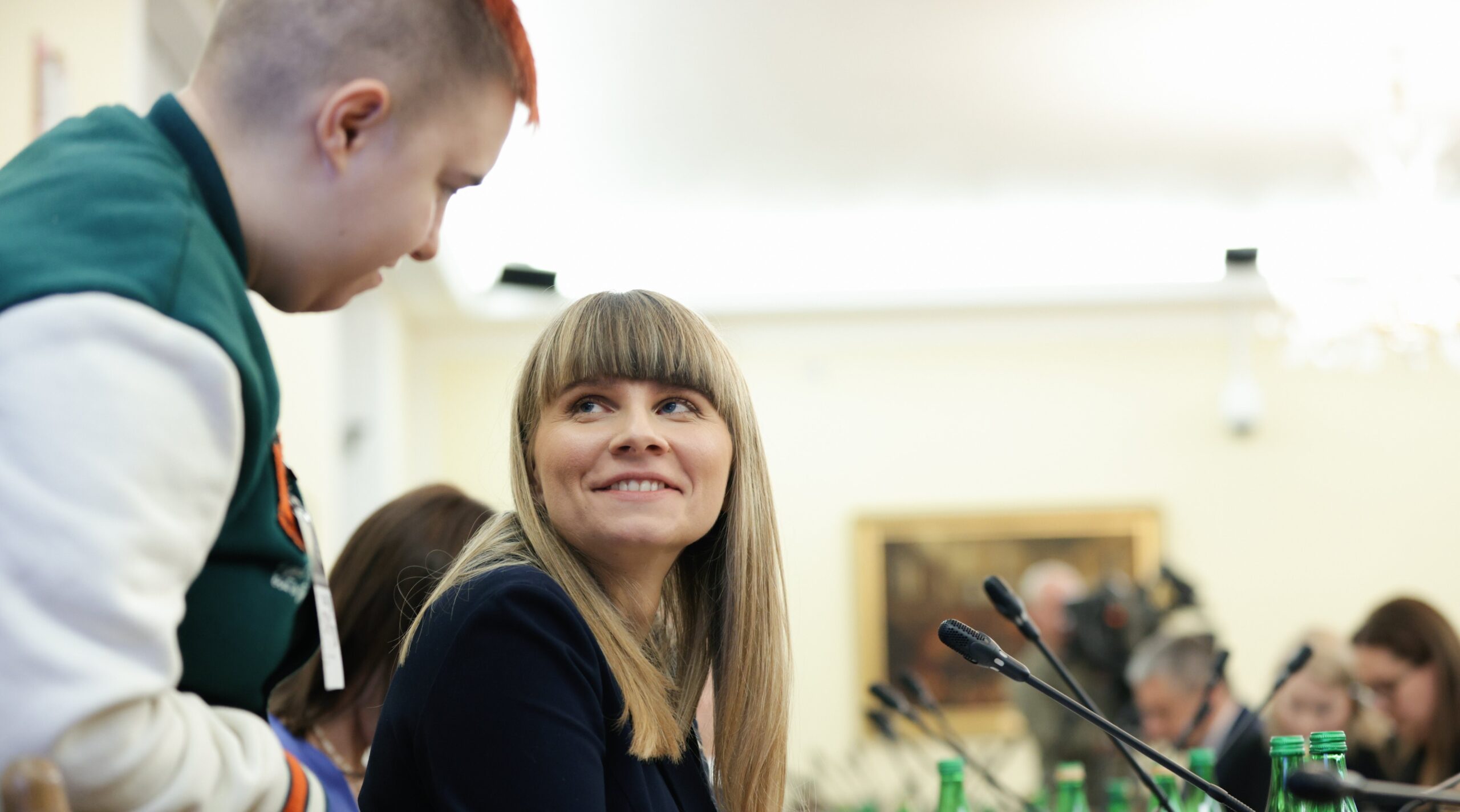Poland’s new coalition replaces conservative children’s rights official with LGBT-friendly successor

Parliament has chosen a new commissioner for children’s rights, in one of the first appointments made by the coalition of parties set to form a government this month.
In a symbolic change, the outgoing commissioner – a conservative figure who has opposed LGBT “ideology” and was once accused of endorsing the spanking of children – has been replaced by a candidate who has expressed support for LGBT rights and opposition to corporal punishment
Rzeczniczka Praw Dziecka wybrana, jest nią mec. Monika Horna-Cieślak‼️‼️ pic.twitter.com/nW5EWSWnCw
— Krzysztof Kwiatkowski (@Kwiatkowski2011) November 30, 2023
The five-year term of the current incumbent, Mikołaj Pawlak, expires this month. He was chosen in 2018, when the national-conservative Law and Justice (PiS) party had a majority in both houses of parliament, the Sejm and Senate.
Pawlak – a 43-year-old specialist in church law – has often been a controversial figure. Earlier this year, he announced an inspection of schools that had been ranked as the most LGBT friendly in the country. This was necessary to “protect children from criminals”, he said.
In 2020, Pawlak claimed that sex educators try to give children sex-change drugs and said that one such case had occurred in Poznań. However, the local authorities in that city noted that no such incident had ever been recorded. Pawlak never provided any evidence to support his claim.
Last month, after PiS lost its parliamentary majority in elections and it became clear that a coalition of more liberal opposition parties would take power, Pawlak wrote a column warning that Christian crosses will be replaced in Polish schools by LGBT rainbow “rags” and the crescent, a symbol of Islam.
The children’s rights commissioner has announced an inspection of schools recently ranked as the most LGBT-friendly in Poland.
He wants to ensure principals „check employees against the register of paedophiles” so „children are protected from criminals” https://t.co/yGPzGeZ3BT
— Notes from Poland 🇵🇱 (@notesfrompoland) May 24, 2023
This week, parliament approved a new figure, Monika Horna-Cieślak, to replace Pawlak now that his term is ending. She is a 32-year-old lawyer and social activist who has been involved in promoting the rights of children and young people since she was a teenager.
During her confirmation hearings, Horna-Cieślak declared that she would support “Rainbow Friday”, an annual event in solidarity with LGBT people held in some schools. By contrast, Pawlak declared in 2019 that “schools must be free from the ideology that hides behind the tolerance of Rainbow Friday”.
Horna-Cieślak also said that she “believes sexual education is necessary”. The PiS government has sought to restrict access by sex educators to schools, arguing they want to “sexualise children”. But members of the incoming ruling coalition have pledged to improve sex education.
Grzegorz Płaczek of the far-right Confederation (Konfederacja) party condemned Horna-Cieślak as a “candidate of sex educators and the silent LGBT lobby”.
Sex education has become a political battleground amid Poland’s election campaign.
We spoke to students and teachers about how the subject is taught in Polish schools, and to activists leading the debate over the current pro-abstinence curriculum https://t.co/uqiRgxrIkh
— Notes from Poland 🇵🇱 (@notesfrompoland) July 19, 2023
Opposition politician Dorota Łoboda, however, welcomed Horna-Cieślak’s appointment because the new commissioner has made clear her opposition to all forms of corporal punishment, including spanking, whereas Pawlak, according to Łoboda, has suggested that “spanking is not violence”.
In a 2019 interview, Pawlak said that, although “one must not beat a child…we need to distinguish between spanking and beating”. The former “doesn’t leave big marks”, he added, “recalling with esteem” how his father spanked him, leaving him “unable to sit”.
His comments were condemned by opposition politicians and many activists as a tacit endorsement of parental violence against children. However, Pawlak accused his critics of taking his words out of context and he issued a statement declaring he was opposed to any such violence.
The Children’s Rights Commissioner says that, while 'one cannot beat a child[,]…one must distinguish between spanking and beating’. The former 'doesn’t leave big marks’ and he 'recalls with esteem’ how his father spanked him, leaving him 'unable to sit’ https://t.co/Mu3aviQ1O0
— Notes from Poland 🇵🇱 (@notesfrompoland) June 19, 2019
In the end, Horna-Cieślak’s candidacy was supported by a majority of 246 votes in the Sejm, made up of MPs from the three incoming ruling groups, Civic Coalition (KO), Third Way (Trzecia Droga) and The Left (Lewica). She was opposed by 195 votes, mainly from PiS and Confederation.
The Sejm vote on Tuesday was followed by one on Thursday in the Senate, where the opposition also has a majority. The upper house also approved her nomination.
“Today in Poland, after eight years of PiS rule, there is a need to restore the dignity of all important offices, functions and public positions,” said Senator Ewa Matecka of KO, quoted by Dziennik Gazeta Prawna.
Once it forms a government – which is likely to happen around the middle of this month – the new coalition has pledged to undertake an extensive overhaul of institutions that have been overhauled and occupied by PiS and its candidates since 2015.
The opposition groups likely to form the next government have signed a coalition agreement
They pledged to:
– restore rule of law
– annul the near-total abortion ban
– depoliticise public media
– prosecute anti-LGBT hate speech
– separate church and state https://t.co/lwQvGGok8s
— Notes from Poland 🇵🇱 (@notesfrompoland) November 10, 2023
Notes from Poland is run by a small editorial team and published by an independent, non-profit foundation that is funded through donations from our readers. We cannot do what we do without your support.
Main image credit: Dawid Zuchowicz / Agencja Wyborcza.pl

Daniel Tilles is editor-in-chief of Notes from Poland. He has written on Polish affairs for a wide range of publications, including Foreign Policy, POLITICO Europe, EUobserver and Dziennik Gazeta Prawna.






